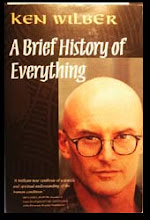"Only those who are divergent can save us"
Integral commentator Jeff Salzman has called for futurist fiction that paints a more constructive picture than your average post-apocalypse. "Divergent," first novel in a trilogy by Veronica Roth, sets the bar, and it does so with concepts that parallel Integral. Millions of young adults are rabid fans of the blockbuster which will be released as a movie in Spring 2014.
Divergent opens in a burned out Chicago where order has been restored by giving each of five factions responsibility for one aspect of the city. Each faction represents one virtue. At age 16, each person chooses whether to stay in the faction of their birth, or transfer to another faction for life.
The factions are remarkably similar to the value levels in Spiral Dynamics. The picture above is from a fan site. I've doctored the colors of each faction to highlight the SD parallels:
- Red for Dauntless/Warrior
- Blue for Selfless Abgenation/Mythic
- Orange for Candor and Erudite, two factions matching the spiral's Efficient Rationalist level
- Green for Amity/Pluralist
- Yellow for Divergent/Integral (not shown above)
Zombie-free "young adult" fiction. But is it Second Tier?
I am only two-thirds through this deeply thoughtful "young adult" thriller. The absence of the purple/magic level so far is noteworthy in an era when so many books targeted to young adults feature sorcerers or zombies. I'm guessing the book is appealing to a generation whose orange/green parents shielded them from red/blue experiences of power and selfless service to the group. And so it is to these two groups that swarms of fans are declaring allegiance at Divergent's fan site.
The feeling of the book is wholly first tier so far -- except for this: the way Divergent people can be identified by others is by their reaction to simulations of their greatest fears. Divergents hold simultaneous awareness of multiple realities, and thus are more quickly able to regain composure in a simulation.
No religion, but Christ Consciousness
Divergent does not discuss religion explicitly; God is mentioned only casually. But one Christian review of Divergent says this:
Abnegation seems to be the “Christian” group, or at least religious one. The book notes that almost all the Divergent are raised in Abnegation. As the story unfolds, the idea seems to be that all the other factions are nothing if they are not selfless; in fact, perhaps all the other factions at their core require the influence of Abnegation. The Dauntless are supposed to be fearless – for the sake of others. Amity brings peace –for the sake of others. The Erudite must learn – for the sake of others. Candor speaks truth – for the sake of others. As a Divergent, Beatrice has three of the factions “fully” in her; I wonder if at some point we will meet a Divergent with all five – a type of Christ if you will, the Incarnation, fully everything. That would be very cool.
The same reviewer also makes a comparison to Hunger Games:
Authority figures are treated with appropriate realism. Many are worthy of trust and respect; some are not. They are all trapped in a system doomed for failure, and for that reason are forced to make hard decisions that at times appear to compromise their integrity. This does not build cynicism in the characters (as it did in the Hunger Games) as much as build desire to see justice and truth prevail.Empowered to Leap over Culverts
I am loving the book, and it has empowered me both morally and physically. First, the sentence, "Only the divergent can save us," energized me to speak more forthrightly when I am seeing a situation from multiple perspectives. And second, the heroine in Divergent bravely faces a brutal initiation into her new faction with the thought, "This is my reality now." Immediately afterward I was hiking a cornfield in Pennsylvania Dutch country and found myself leaping over culverts I normally would have detoured around.
Take the Divergent Test
Fans at the fan site are clamoring to take a test to identify their natural faction. I'm hoping some of my Integral friends involved with leadership assessment might have just the thing for them.










